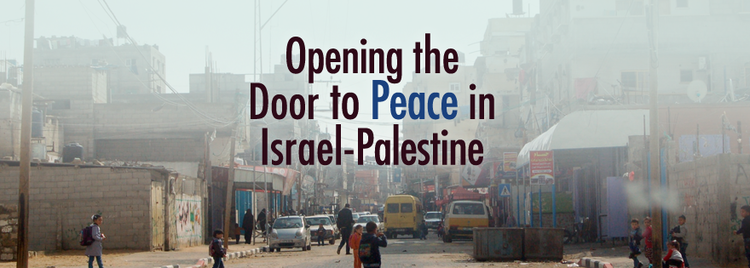
The hypermilitarized U.S. approach to the Israeli-Palestinian conflict needs to change. Unconditional U.S. military aid to Israel — making up 20 percent of Israel's military budget — is part of the problem. So is the fact that U.S. policymakers too often view the security of Israelis and Palestinians as a zero-sum game, rather than focusing on the ways their security is interlinked. Israel’s nearly half-century military occupation of the West Bank and Gaza Strip endangers the lives of both Palestinians and Israelis.
Quakers have a long tradition of working alongside Jewish, Arab, and other communities in this region to oppose violence and support peace. In our lobbying in Washington, FCNL similarly strives to play that peacebuilding role, urging the U.S. to condemn violence on all sides and to provide assistance that can prevent, de-escalate, and resolve the long-standing conflicts that affect the security and well-being of both Israelis and Palestinians.
After decades of failed peace negotiations and violence, many in the U.S. are pessimistic about progress toward a long-term solution to the conflict. One Quaker who has lived and worked in the region told FCNL staff: ”It may take the changing of an entire generation before we can make real progress on Israeli-Palestinian issues.”
In the midst of this stalemate, FCNL is pressing for U.S. policy steps that could have a big impact on people's lives, improve security, and decrease the divisions that are driving violent extremism.
This conflict won’t be solved overnight. Yet addressing it is critical not only to improve the lives of millions of Israelis and Palestinians but to unravel the knots of conflict that reach far beyond the region‘s borders. Ten years ago, James Baker and Lee Hamilton’s Iraq Study Group concluded that “All key issues in the Middle East — the Arab-Israeli conflict, Iraq, Iran, the need for political and economic reforms, and extremism and terrorism — are inextricably linked.” Today, by seizing opportunities to advance Israeli-Palestinian peace, we can transform U.S. engagement with the Middle East, and the world.